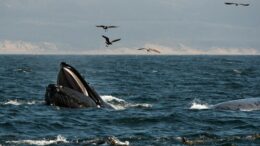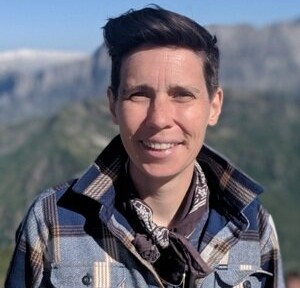One of the best parts of our jobs is talking to some of the smartest and most inspiring people working on environmental issues. Some of them share their expertise as sources for our reporting, but a few dozen allow us to take a deep dive into their work in our Q&A feature The Ask.
This year we learned a ton from these folks, which include frontline activists, scientists, policy wonks and writers. Here are a few of our favorite conversations, along with some quotes that still resonate with us.
Sounds of Silence: Extinction Is Erasing the Earth’s Music
“I started thinking about how I could open people’s hearts without breaking them. How I could point to the onrushing extinctions and not force people to turn away in absolute grief. I decided that I was going to have to write in a way that was like a wave — I would lift people and smash them at the same time.” —Kathleen Dean Moore
‘There’s No Memory of the Joy.’ Why 40 Years of Superfund Work Hasn’t Saved Tar Creek
“When EPA first came in, we were all excited: ‘We’re going to get this fixed.’ We all believed that they would do something, they would do it quickly, it would be resolved and we’d have fish in that creek again. And people could play in it again. But then they walked away and they did nothing and have still done nothing for that creek. Now you have 40 years of children not being able to play in it. Pretty soon there’s no memory of the joy. It’s forgotten.” —Rebecca Jim
Justice First: How to Make the Clean Energy Transition Equitable
“I want people to get curious and begin to organize around a just energy future. And to also maybe even get a little upset about the deep injustice that is embedded into not just the fossil fuel system — because that’s a story we know — but into this clean energy transition, where we are not only replicating but in some ways exacerbating inequality.” —Shalanda Baker
Move or Change: How Plants and Animals Are Trying to Survive a Warming World
“What the study of climate change biology allows us to do is not to cease worrying, but rather to worry smart. It puts us in a much stronger position in terms of how we allocate scarce resources to these problems. If you understand the species and the systems that are most vulnerable, if you understand the ones that have some natural resilience, you’re in a much better position to manage the crisis.” —Thor Hanson
Line 3: Stopping the Next Big Climate Threat Crossing the U.S.-Canada Border
“I try to push folks to think about direct action not just as being about getting arrested or something like that. To me, it’s about standing with the Earth in a real way, putting something at risk and being uncomfortable. I don’t think that we’re going to solve the climate crisis comfortably. I don’t think we’re going to solar panel or policy-make our way out of this massive existential threat we’re facing.” —Tara Houska
The Extinction Crisis in Watercolor and Oils: Using Art to Save Plants
“I’m very passionate about the importance of plants. I think they’re sometimes neglected, particularly when it comes to messages about conservation and the importance of biodiversity. People are excited by animals. They’re engaged and intrigued by animals, and often not so much with plants. You talk to people and that know, plants are beautiful or they’re great in my garden. But they see them as a backdrop for animals to exist against.” —Chris Thorogood
Injustice Forever? Toxic PFAS Chemicals Have ‘Made a Mockery of Our Environmental Regulations’
“The petrochemical manufacturers knew the risks of these chemicals almost from the moment they started manufacturing them in the 1960s. Again and again, they buried that evidence. The ways that PFAS has made a mockery of our environmental regulations can’t be the end of our ability to prosecute these injustices.” —David Bond
How an Indigenous Scientist Studies Global Change
“For me, I do feel finally that there’s space for my Native American identity and my Western science career to co-exist in the work that I do. Now it’s non-negotiable. Coming up in academia I didn’t see anyone like me, and I want to help with that.” —Danielle Ignace
The Fight Against Plastic: ‘If You’re Not at the Table, You’re on the Menu’
“I think with all of the racial justice uprisings with George Floyd, with Black Lives Matter, with youth activists, there’s a moment right now where we need to pivot on plastics — and environmental issues in general — and really give the social justice piece the justice it deserves.” —Shilpi Chhotray
![]()



